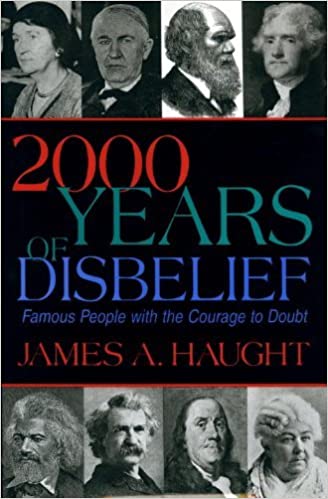This piece was reprinted by OpEd News with permission or license. It may not be reproduced in any form without permission or license from the source.
None of America's radical founders were traditional Christians. Most were Deists (somewhat forerunners of sciencd-minded Unitarians) who speculated that a Creator had formed the universe and nature, but had nothing to do with churches or Jesus.
One was John Adams, who was sent to Harvard College and pressured to become a clergyman. But Adams chose law. He told a friend that he respected lawyers, but saw in the clergy the "pretended sanctity of some absolute dunces." (letter to Charles Cushing, October 19, 1756)
When Britain imposed the Stamp Act on the colonies in 1765, Adams became a leader of colonial resistance. After his election to the Massachusetts legislature, he attacked British policies. Then he went to Philadelphia in 1774 as a delegate to the First Continental Congress, where he became a chief advocate of independence. Adams proposed creation of a Continental Army, with George Washington as commander.
Two years later, he seconded the motion to break with Britain, and was named to the committee to write a Declaration of Independence. Adams worked with his younger colleague from Virginia, Thomas Jefferson, who called him "the colossus of that debate."
Adams served as envoy to France and Britain, and helped negotiate an end to the Revolution in 1783. In the first elections in 1788 and 1792, he received the second-highest number of electoral votes, making him vice president under President Washington. In the 1796 election, he got three more votes than his fellow radical from Virginia, so he became president and Jefferson vice president.
In the 1790s, political parties took shape. Populist-minded Jefferson and James Madison led the incipient Democrats. Aristocratic Alexander Hamilton and half-aristocraticAdams headed the Federalists. Hamilton turned the 1800 election vicious. He half-heartedly supported Adams as the Federalist nominee for president while leading a Federalist slander campaign that branded Jefferson an atheist. Jefferson narrowly won, and Adams bitterly went home to retirement.
Years later, after President Jefferson also had retired to his farm, a remarkable thing happened: The two men who had been young radical friends, then split as political enemies, reconciled and entered a long period of warm correspondence. Their letter writing focused repeatedly on religion, and they concurred in their scorn for Christianity.
For the remainder of their twilight years, Adams and Jefferson kept up their fond letters. Finally, on July 4, 1826 -- the fiftieth anniversary of the Declaration of Independence -- the dying Adams spoke his final words: "Thomas Jefferson still lives." He did not know that Jefferson had died a few hours earlier.
Adams's views on religion:
"The frightful engines of ecclesiastical councils, of diabolical malice, and Calvinistical good-nature never failed to terrify me exceedingly whenever I thought of preaching." - letter to his brother-in-law, Richard Cranch, Oct. 18, 1756, ex plaining why he rejected the ministry
"Numberless have been the systems of iniquity.... The most refined, sublime, ex tensive, and astonishing constitution of policy that ever was conceived by the mind of man was framed by the Romish clergy for the aggrandizement of their own order....They even persuaded mankind to believe, faithfully and undoubtingly, that God Almighty had entrusted them with the keys of heaven, whose gates they might open and close at pleasure ... with authority to license all sorts of sins and crimes ... or withholding the rain of heaven and the beams of the sun; with the management of earthquakes, pestilence, and famine; nay, with the mysterious, awful, incomprehensible power of creating out of bread and wine the flesh and blood of God himself. All these opinions they were enabled to spread and rivet among the people by reducing their minds to a state of sordid ignorance and staring timidity, and by infusing into them a religious horror of letters and knowledge. Thus was human nature chained fast for ages in a cruel, shameful, and deplorable servitude." - A Dissertation on the Canon and the Feudal Law," printed in the Boston Gazette, August 1765
"... Of all the nonsense and delusion which had ever passed through the mind of man, none had ever been more extravagant than the notions of absolutions, indelible characters, uninterrupted successions, and the rest of those fantastical ideas, derived from the canon law, which had thrown such a glare of mystery, sanctity, reverence, and right reverend eminence and holiness around the idea of a priest as no mortal could deserve ... the ridiculous fancies of sanctified effluvia from episcopal fingers...." - ibid
"The United States of America have exhibited, perhaps, the first example of governments erected on the simple principles of nature... It will never be pretended that any persons employed in that service had interviews with the gods, or were in any degree under the influence of heaven.... These governments were contrived merely by the use of reason and the senses." - A Defense of the Constitutions of Government of the United States of America, 1788
"... The government of the United States is not, in any sense, founded on the Christian religion...." - treaty with Tripoli, passed unanimously by the U.S. Sen ate and signed by President Adams on June 10, 1797
(Note: You can view every article as one long page if you sign up as an Advocate Member, or higher).





